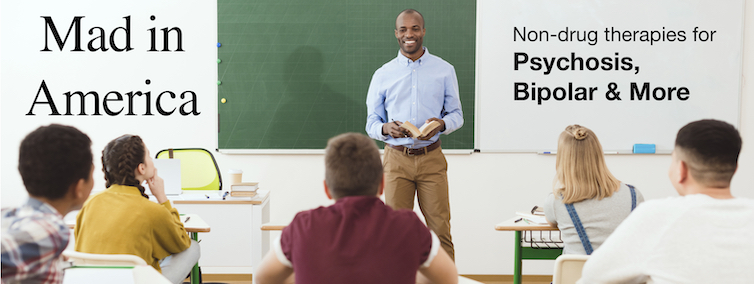
This review provides a summary of non-pharmacological treatments for children diagnosed with various psychiatric disorders — psychosis, bipolar, and disruptive behaviors — that are regularly treated with antipsychotic drugs. However, the treatments for psychotic disorders and bipolar disorders discussed below are presented as adjuncts (add-ons) to antipsychotics rather than as alternatives to the drugs.
Childhood Conduct Disorder (Disruptive Behaviors)
Overview
Stephen Scott, a professor of child health and behavior in the UK, has written extensively about psychosocial interventions for problems of childhood behavior. His foremost suggestions, discussed in this report, are to involve the family non-judgmentally, teach parenting skills, improve upon youths’ existing strengths, and address the specific context of problems (such as school, at home, or with peers).
Another report, from John Church at the University of Canterbury, UK, offers similar findings, with an emphasis on intervening as early as possible. This report reviews, in great detail, many varied types of psychosocial interventions and is a great resource for identifying the evidence base for these programs.
